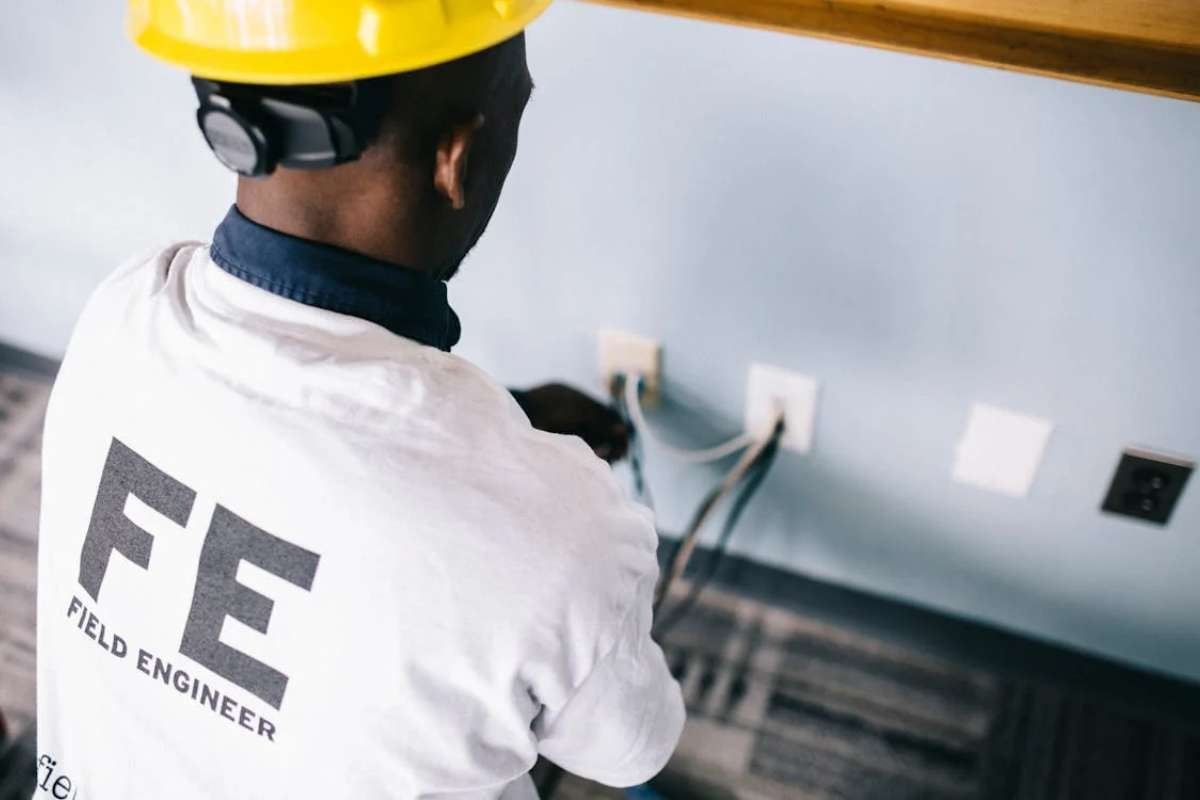There’s this idea people have about tradie businesses, like electrical work. You know the one. That you show up in your van, fix a few wires, have a chat with the client, maybe drink a cup of tea and head off to the next job with a fistful of cash. No stress, no admin, no big picture strategy. Just hard work and decent money.
However, what starts as a simple dream of running your own small electrical business can quickly become a juggling act. Managing jobs, handling compliance, and trying to build a name for yourself, it often feels like you’re spinning plates while someone keeps adding more. And yet, somehow, this kind of business draws in people who thrive under pressure, people who value results over fluff.
The Work Is Only Half the Job
The electrical work itself might be the part you enjoy the most, but it’s probably the smallest part of your day. Once you start taking on clients and scheduling jobs, the actual time spent on tools becomes just one piece of the puzzle. You’ll need to quote jobs, respond to emails, chase invoices, keep track of stock, deal with faulty products, and navigate suppliers who seem to operate on their own time. Finding reliable sources for electrical wholesale supplies can make a huge difference here, saving you both time and frustration.
Every one of these tasks has the potential to slow down your week, and that’s not even counting the paperwork involved in things like safety certificates or testing logs. And if you’re growing your team, things get even more interesting. Suddenly you’re not only responsible for your own work but also for mentoring apprentices, coordinating other electricians and making sure everyone is meeting standards as well. It’s a lot to keep on top of.
No One Prepares You for the Quiet Weeks

One of the biggest surprises for new small electrical business owners is how unpredictable the work can be. Some weeks it feels like there aren’t enough hours in the day. Others, you’ll find yourself refreshing your emails and wondering where everyone’s gone. It doesn’t mean the business is failing, it just means that flow matters. When you rely on reactive work or one off jobs, you’ll always be chasing the next lead.
Building up a regular client base takes time, and the space between jobs can feel like it stretches longer than it should. This is where many people start looking into contracts and maintenance agreements. not because they love doing the same thing on repeat, but because predictable work gives breathing room. It’s much easier to plan when there’s a known baseline.
Your Reputation Travels Faster Than You Think
Most small electrical businesses live or die by word of mouth. That’s a good thing when the jobs are going well and your clients are happy. But the opposite is also true. One bad review, one misunderstood comment, one time you’re running late without calling ahead—it all spreads. Building trust takes time, and losing it can happen overnight. Clients might not remember how fast you fixed something, but they’ll definitely remember how you made them feel.
Were you respectful of their home? Did you explain things clearly? Did you follow up after the job? People will notice. And they’ll tell their friends. In a competitive field where many businesses offer the same services, the way you show up is just as important as the work you do.
The Admin Is Not Optional

It’s tempting to treat admin like an afterthought. After all, it doesn’t earn money directly. But ignoring it is like skipping the foundations on a new build. Things might look fine for a while, but eventually the cracks show. From registering your business properly to setting up insurances and handling tax, everything needs to be done by the book. And then there’s compliance. Depending on your area, you’ll be responsible for keeping up with regulations that seem to change just when you’ve got the last ones figured out.
Some small electrical business owners manage everything with a notebook and sheer determination. Others invest in job management software early on. Either way, staying organised makes a massive difference. It’s not about being perfect, just about being prepared when someone asks for a copy of something from two months ago and you don’t have to panic.
Good Help Is Hard to Find
Hiring people is supposed to be a big step forward, but the truth is it can be a real headache. You want someone who knows what they’re doing, obviously, but also someone who just fits. Someone who gets how you work, who understands how you like things done, and who won’t make things harder when you’re already stretched. That’s not easy to find. Apprenticeships can be great if you have the time to do it properly.
Teaching someone from scratch in a small electrical business means showing them everything, not just the technical stuff but the small things too. How to talk to clients. How to handle awkward moments. How to pay attention. It takes patience and consistency, and on busy weeks it can feel like a lot to carry. There are times when work piles up and it’s tempting to hire whoever’s available, just to have another set of hands. But that can backfire quickly. One bad fit can cause more stress than being short staffed. A job done badly or even just carelessly can undo months of trust with a client.
People don’t usually separate your staff from your business. As far as they’re concerned, that person represents you. And it’s not just about the work itself. It’s about whether they show up on time. Whether they treat people’s homes with respect. Whether they know how to have a conversation without being awkward or too casual. Residential work in particular means being invited into someone’s space. If your team can’t handle that well, it makes everyone look bad.
You Have to Learn Sales Even If You Hate It

A lot of electrical professionals start their business to get away from working for someone else, not because they want to become salespeople. But running a business means understanding what clients want and helping them see the value in your service. That doesn’t mean selling people things they don’t need. It means being able to explain your quote clearly, answer questions confidently, and back up your pricing with quality and professionalism.
It also means following up after a site visit, reminding people to book in, and sometimes having uncomfortable conversations about budgets. People often choose trades they trust, not necessarily the cheapest. So it’s not about undercutting everyone else. It’s about showing clients that you’re worth choosing, and making it easy for them to say yes.
Burnout Can Creep In Quietly
Running your own business can be so rewarding, but it’s rarely relaxing. There’s long hours, physical work, financial stress and the constant pressure to keep everything running as well, it all adds up. At first you might not notice it and push through late nights, skip meals, cancel weekends off. But over time, that pace takes a toll. If you’re not careful, burnout shows up quietly and sticks around longer than expected. It’s easy to forget that the business only works if you do. Making time to rest, building systems to reduce your workload, and asking for help when needed is not a luxury. It’s necessary.
Success Looks Different for Everyone
There’s no one right way to run a small electrical business. Some people aim to scale and hire a big team. Others prefer to keep it small and hands on. Some focus on residential, others go after commercial contracts or niche areas like solar or automation. What matters is knowing what kind of business you actually want. Not the one people say you should build. Not the version you saw on social media.
The one that fits your goals, your values, and the kind of life you’re trying to build around it. Because at the end of the day, it’s your name on the van, your phone that rings when something goes wrong, and your time being traded for every bit of progress.









